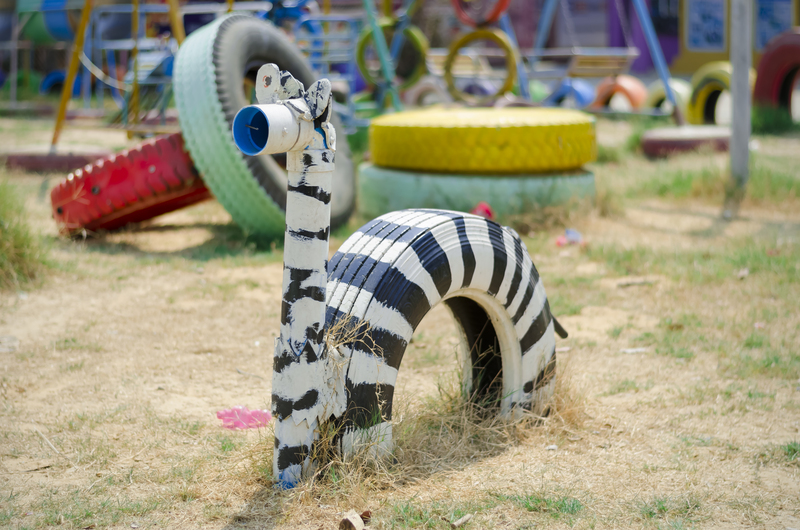Navigating Hard Rubbish: Identification and Proper Disposal
In today's ever-evolving world, managing waste effectively is crucial for both the environment and our communities. Hard rubbish, also known as bulk waste or hard garbage, often poses significant challenges, not just in terms of volume, but also concerning appropriate disposal practices. This article aims to provide a comprehensive guide on identifying and properly disposing of hard rubbish, ensuring sustainability and compliance with environmental regulations.
What is Hard Rubbish?
Hard rubbish generally refers to large waste items that do not fit in regular trash bins. These are typically items that households wish to get rid of, including old furniture, appliances, and other bulk waste items. Understanding what constitutes hard rubbish is the first step in efficient waste management.
Common Examples of Hard Rubbish
- Furniture: Items like sofas, dining tables, bed frames, and wardrobes.
- Appliances: Large household gadgets such as refrigerators, washing machines, and ovens.
- Electronics: Old TVs, speakers, and computers fall under e-waste but often get collected as hard rubbish.
- Miscellaneous: Carpets, mattresses, and large garden waste such as branches and wood.

The Importance of Identifying Hard Rubbish Properly
The ability to identify what qualifies as hard rubbish is crucial. Misclassification can lead to improper disposal, which may result in fines or environmental harm. Furthermore, by correctly identifying these items, we can explore alternative disposal methods that may be more environmentally friendly or even profitable.
Environmental Impact
Improper disposal of hard rubbish can lead to significant environmental consequences. Electronics, for instance, contain hazardous substances that can leach into the soil and water when not disposed of correctly. Additionally, large wastes in landfills contribute to methane emissions, a potent greenhouse gas.
Sustainable Identification Approaches
- Check Local Guidelines: Different regions have varying definitions and rules regarding hard rubbish. It is essential to familiarize yourself with local waste management guidelines.
- Sort Before Disposal: Separate items based on material type, such as metals, plastics, and wood.
- Use Technology: Apps and online platforms can provide quick identification and appropriate disposal guidelines.
Proper Disposal of Hard Rubbish
When it comes to disposing of hard rubbish, there are several environmentally friendly and efficient options. Exploring these methods can lead to reduced environmental impact and cost savings.
1. Council Collections
Most cities and towns offer hard rubbish collection services. These are generally scheduled events where residents can place their bulk waste on the curb for pickup. It is important to check the schedule and adhere to the specific guidelines provided by the local council.
2. Recycling and Reusing
One man's trash is another man's treasure. Many hard rubbish items can be recycled or reused:
- Furniture: Donate to charities or sell online.
- Appliances: Repair and resell or extract materials for recycling.
- Electronics: Dispose of at designated e-waste recycling centers.
3. Professional Waste Disposal Services
Engaging professional services can ensure that your hard rubbish is disposed of in compliance with local regulations. These services often recycle eligible materials, minimizing the environmental footprint.
4. DIY Disposal: Upcycling Projects
If you're a DIY enthusiast, turn unwanted items into creative projects. Upcycling not only reduces waste but also adds personal value to the items you already own.

Tips for Efficient Hard Rubbish Management
Efficient hard rubbish management entails a proactive approach and understanding the nuances of waste classification.
Plan Ahead
- Regularly Review Items in Your Home: Periodic checks can prevent accumulation.
- Batch Your Waste: Group items for easier disposal or recycling.
Community Engagement
Involving the community can make a huge difference. Neighborhood initiatives can lead to group collection events, shared knowledge, and reduced costs.
Stay Informed
Regulations and available services frequently change. Frequency staying updated on your local council's policies ensures you are not caught unprepared.
Conclusion
Navigating hard rubbish disposal requires careful understanding and strategic planning. By identifying what counts as hard rubbish and utilizing proper disposal methods, we move closer to achieving a sustainable lifestyle and healthier environment. Remember: Effective waste management begins with each of us making informed decisions. Let's ensure our actions today contribute positively to our world tomorrow.